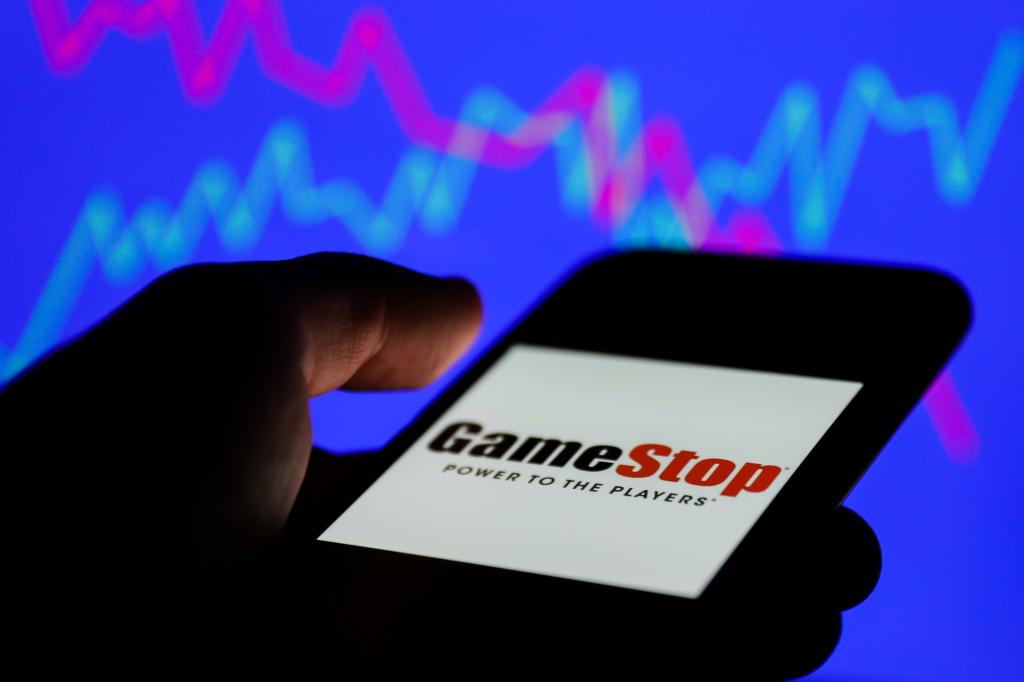Elizabeth McLaughlin, Staff

GameStop stock reached an all-time high of $492.02/share on Jan. 28, 2021, putting Wall Street investors at risk of losing millions on shorts.
In January of 2019, GameStop (GME) was trading at $15. By January 2020, less than $5 per share. Shorting the stock of a company that becomes increasingly obsolete as we continue to redefine the digital age is widely regarded as a smart investment; that is why a lot of Wall Street investors felt confident in shorting GME. But on Jan. 28, 2021, GameStop reached an all-time high of $492.02—and those investors were taking on hemorrhaging losses. Who do they have to blame for initiating their downfall? Users from a Reddit forum called r/WallStreetBets.
These users conspired to drive up share prices of fledgling companies, yielding them significant profits while simultaneously stealing profit from Wall Street investors. When put that way, it sounds Robin Hood-esque. It then follows that these users waged their war via the online trading platform, Robinhood. This app aims to “democratize finance” by enabling anyone to buy and sell stocks and other securities. It was developed by two Stanford grads who built their own finance companies where they sold trading software to hedge funds. The app, which is designed to incentivize trading, makes trading simpler than ever. Robinhood transplants the stock market from the stuffy, befuddling environment of a traditional brokerage firm to your own personal smartphone. When a user makes a trade, an animation of confetti congratulates them, nudging them to keep trading. Robinhood’s design and objectives, combined with the economic effects of the pandemic, have prompted nascent investors to try their hand at the stock market. In the first quarter of 2020, Charles Schwab, TD Ameritrade, Etrade and Robinhood — the major online brokers — saw new accounts grow as much as 170 percent. The ease at which one can trade stocks is what allowed a group of Reddit users to wage an expensive attack on Wall Street.
Those on r/WallStreetBets started a trading frenzy, driving GME up 134 percent. On Jan. 11, GameStop announced three new directors to its board whose goals were to reposition GameStop in the modern video game retail environment; to save it from going under. For this reason, GME stock began to rise modestly. But once Redditors got a hold of it, its price rose so rapidly that they triggered automatic trading halts designed to stem market volatility.
Wide price swings and heavy volume fluctuations should prompt self-regulating organizations like the Nasdaq to take certain precautionary measures. But a bunch of lower-to middle-class citizens who decide to capitalize on financial literacy in any way they can — through a free subreddit rather than a pricey stock broker, for example — deserve access to the free market. Is this a battle between populists and institutions? Some of these “populists” have criticized those in the financial sector who have profited off of the coronavirus pandemic. The phrase “eat the rich” is quickly becoming a defining cultural statement; a memetic imitation of the frustration regarding 21st-century wealth inequality. Robinhood’s decision to restrict trading, effectively siphoning off profits from the everyman in favor of Wall Street hedge funds, is controversial.
Robinhood faces criticism on their trading restrictions not only from slighted day traders on Reddit, but also from Democratic and Republican politicians as well as the Securities and Exchange Commission (SEC). On Jan. 29, the commission released a statement that they will be investigating the situation with GameStop and that it will “closely review actions taken by regulated entities that may disadvantage investors or otherwise unduly inhibit their ability to trade certain securities.” Despite this, the Fed is not likely to get involved in the frenzy. For one thing, market fluctuations associated with GME, AMC and other similar stocks are not likely to impact the broader market. David Beckworth, an economist at George Mason University, said that fallout from GME means that “people would lose equity, but it wouldn’t lead to the problems of homes financed with mortgages and exotic mortgage securities.” In other words, the Fed has bigger fish to fry. Additionally, raising interest rates to change people’s expectations about the market would yield “a very high likelihood of causing a recession,” says Adam Posen, economics of the Peterson Institute for International Economics. “On the other hand, if you raise interest rates quite a bit, you are not by any means assured that you would pop the bubble.”
The SEC promises to investigate Robinhood’s actions; politicians continue to tweet angrily at Robinhood executives and their cohorts; the Fed can’t and likely won’t do much. So what can be done? The SEC could evaluate its leverage and reporting requirements on firms like Robinhood. Doing so would protect retail investors who serve as the app’s product, not its users. Robinhood employs an order flow payment model — they sell accumulated trading histories of retail clients to earn a substantial amount of its revenue in lieu of commissions. “On top of that, trades are executed in dark pools, which lack transparency and regulatory oversight,” said a representative from the International Financial Law Review. If their goal is really to empower “the next generation of investors to take charge of their financial futures,” then it should allow those who use it to execute the trades they want, even if Wall Street hedge funds lose some money and have to reevaluate their trading strategies. On the evening of Feb. 1, Robinhood released a statement saying that they “didn’t want to stop people from buying stocks and [they] certainly weren’t trying to help hedge funds.” Whether or not that is true, one thing remains clear: these disgruntled Wall Street investors simply have to learn how to adapt.
mclaughline7@lasalle.edu

